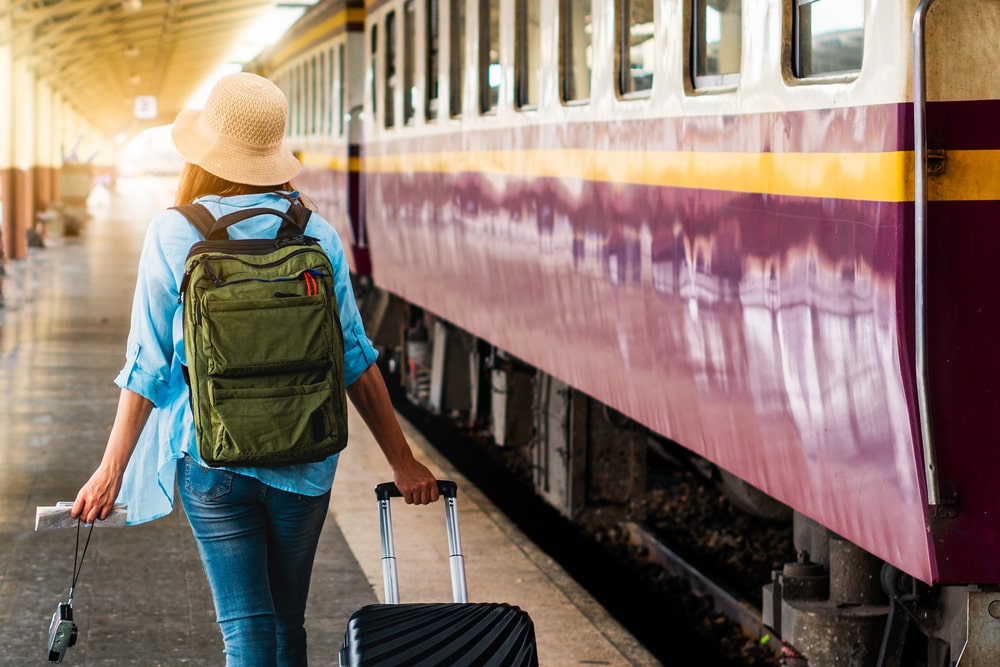Carbon-neutral travel is a hot topic in the travel industry as more and more people are becoming aware of the environmental impact of air travel. The aviation industry is responsible for a significant portion of global carbon emissions, and as such, travellers need to understand the impact of their travel choices and take steps to offset their carbon footprint.
Why is air travel´s carbon footprint so big?
One of the main reasons that air travel has such a large environmental impact is that aeroplanes release greenhouse gases at a high altitude, which have a greater impact on the atmosphere. According to the International Civil Aviation Organization (ICAO), international aviation accounts for around 2% of global carbon emissions. While this may not seem like a lot, it is important to consider that this number is expected to grow in the coming years as air travel becomes more accessible and affordable for more people. The Carbon Offsetting and Reduction Scheme for International Aviation (CORSIA) adopted by ICAO in October 2016, aims to achieve carbon-neutral aviation growth.
Another factor contributing to the environmental impact of air travel is that aeroplanes are powered by jet fuel, which is a fossil fuel. Jet fuel is not only a major source of carbon emissions, but it also contributes to air pollution and has a negative impact on public health. Private companies like Twelve or Air Company seek to lower the airline industry's global carbon emissions by manufacturing ‘clean’, carbon-neutral jet fuel out of carbon already in our atmosphere.


Greener travels
So, what can travellers do to offset the environmental impact of their air travel? One option is to purchase carbon credits to mitigate the impact of their travel choices on the environment. This is a way for individuals and organisations to neutralise their carbon footprint by supporting projects that reduce or remove carbon from the atmosphere. Organisations like DGB Group offer carbon offsetting services, and travellers can choose from a variety of projects, such as renewable energy projects, reforestation, and carbon capture and storage.
How air giants Boeing and British Airways reduce their carbon footprint
Another way to offset the environmental impact of air travel is to choose alternative forms of transportation whenever possible. For example, instead of flying to a destination, consider taking a train or a bus. These forms of transportation are not only more environmentally friendly, but they can also offer a more relaxed and enjoyable travel experience.
In addition to offsetting the environmental impact of air travel, there are also steps that travellers can take to reduce their carbon footprint while they are on vacation. For example, travellers can choose to stay in eco-friendly accommodations. This can include hotels, resorts, and vacation rentals that have implemented sustainable practices such as using renewable energy sources, recycling, and implementing water conservation measures. Many countries and regions have certifications for eco-friendly accommodations, such as LEED certification for hotels and resorts in the United States and Green Key certification for hotels and resorts in Europe. According to Booking.com, 72% of travellers are willing to pay more for sustainable accommodations. And Airbnb offers a ‘Green’ filter that allows travellers to search for listings that have implemented eco-friendly practices. Some vacation rental companies, such as Ecological Vacation Rentals, have specialised in offering eco-friendly properties.
In addition to hotels and vacation rentals, eco-camping and glamping options are also becoming increasingly popular. Glamping Hub, for example, offers a wide range of eco-friendly glamping accommodations, such as yurts, tree houses, and safari tents, powered by renewable energy sources and using sustainable practices. Travellers can also choose to participate in activities that are good for the environment, such as hiking or wildlife watching, instead of activities that have a larger carbon footprint, such as jet skiing or parasailing.
Lastly, you can plant trees. Trees extract carbon dioxide (CO2) from the air and convert it into oxygen and biomass (such as wood, leaves, and roots). They release oxygen into the air. Trees store extra CO2 as they grow. The CO2 is then captured in the increasing biomass of the tree. If the wood is burned or rotted away, the CO2 is released back into the air. Therefore, planting trees is a great way to offset your travel carbon footprint.
Plant a tree to offset your travel carbon footprint
How do airlines limit CO2 emissions?
Airlines are investing in aeroplanes that use less fuel and use plastic more sustainably on board. They are also switching to more sustainable fuels where possible. More and more travel organisations and websites that sell airline tickets are also offering carbon offsetting.
Air France, for instance, will compensate for all CO2 emissions for domestic flights. Budget airline EasyJet even applies this to all of its flights. Other companies choose to leave climate compensation up to the passenger: When booking, you can indicate whether you want to travel climate neutrally and pay a small fee for carbon offsetting.

What does carbon offsetting cost?
To compensate for a medium return flight between 1,500 km and 4,000 km for two people will cost you between €10 and €50. Depending on the organization, you might be able to select which emissions to compensate for, such as CO2 or other greenhouse gases. Some providers frequently only compensate for the CO2 emissions of the flight, rather than the entire climate effect (which is greater than just CO2).
If you want to offset your entire carbon footprint, find a way to compensate for the entire climate effect of your travel, including the transfer flight is also included. Otherwise, there's a good chance you'll only be compensated for a portion of your trip.
Of course, compensating for even just a part of travel emissions is always better than not compensating at all. In addition, compensation costs are becoming more transparent and affordable, therefore allowing more people to compensate for their air travel. By reducing your carbon footprint, you contribute to a greener, more sustainable future for all.





